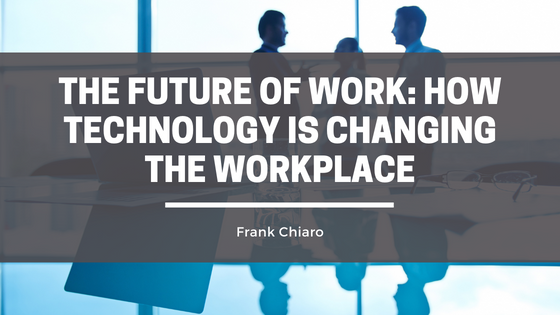The way we work is rapidly changing, and technology is at the forefront of this transformation. With the rise of digitalization, automation, and artificial intelligence, the future of work is more uncertain than ever. However, it is also an exciting time, full of potential and opportunities for businesses and workers alike. In this blog, explore how technology is changing the workplace and what it means for the future of work.
Automation is one of the most significant changes that technology has brought to the workplace. Advances in robotics and AI mean that machines are increasingly capable of performing tasks that were once the exclusive domain of human workers. This has the potential to revolutionize industries from manufacturing to transportation and logistics. However, it also means that some jobs will become obsolete, particularly those that involve routine, repetitive tasks. While this can be unsettling for workers, it also opens up new opportunities for learning new skills and taking on more creative, fulfilling roles.
Another significant impact of technology on the workplace is the rise of remote work. With the advent of video conferencing, cloud computing, and other digital tools, it’s easier than ever for workers to collaborate and communicate from anywhere in the world. This has the potential to create a more flexible and diverse workforce, with workers from different countries and backgrounds able to contribute to projects and teams. However, it also presents new challenges for managers and companies, who must learn to manage teams that are dispersed across different time zones and cultures.
In addition to these changes, technology is also transforming the way we learn and acquire new skills. E-learning platforms, such as Coursera and Udemy, offer affordable and flexible options for workers to upskill and reskill. This is particularly important given the rapid pace of technological change, which means that workers must constantly adapt to stay relevant in their fields. E-learning also offers opportunities for workers to pursue new career paths, regardless of their location or previous educational background.
Finally, technology is also changing the way we think about the traditional 9-5 workday. With the rise of the gig economy and freelance work, more workers are able to set their own schedules and work on a project-by-project basis. This offers greater autonomy and flexibility but also requires workers to take on more responsibility for their own careers and financial security.
The future of work is being shaped by technology in ways that are both exciting and challenging. While automation may lead to job losses, it also presents opportunities for workers to take on more creative and fulfilling roles. Remote work and e-learning offer new possibilities for collaboration and skill-building, while the gig economy and freelance work offer greater autonomy and flexibility. It’s clear that the workplace of the future will require workers to be adaptable and willing to learn new skills throughout their careers. However, with the right mindset and tools, workers can thrive in this rapidly changing landscape.
